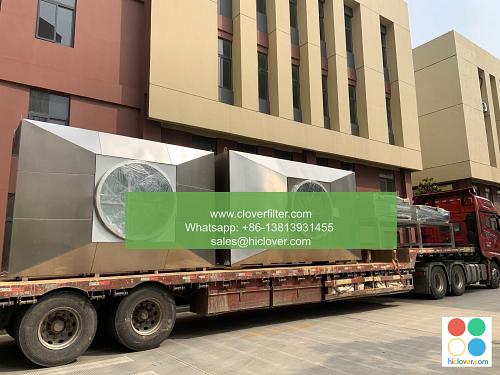Air Filters for Industrial Compressed Air Systems: A Primer

Industrial compressed air systems are a crucial component of many manufacturing processes, providing the power and efficiency needed to drive various applications. However, the quality of the compressed air is just as important as its quantity. Contaminants such as dust, dirt, oil, and moisture can compromise the performance and reliability of downstream equipment, leading to costly repairs and downtime. This is where air filters for industrial compressed air systems come into play.
Importance of Air Filtration in Industrial Compressed Air Systems
Air filtration is essential in industrial compressed air systems to remove contaminants and ensure the delivery of clean, dry air. The presence of contaminants can lead to a range of problems, including corrosion, scaling, and fouling of equipment, as well as the degradation of product quality. Effective air filtration can help prevent these issues, improving overall system efficiency, reducing maintenance costs, and increasing product reliability.
Types of Air Filters for Industrial Compressed Air Systems
There are several types of air filters available for industrial compressed air systems, each designed to target specific contaminants and application areas. Some of the most common types include:
* Particulate filters, which capture dust, dirt, and other solid particles
* Coalescing filters, which remove oil and water droplets
* Activated carbon filters, which absorb odors, vapors, and gases
* Membrane filters, which provide precise filtration of liquids and gases
Application Areas for Air Filters in Industrial Compressed Air Systems
Air filters are used in a variety of industrial applications, including:
* Food and beverage processing, where clean air is crucial for product quality and safety
* Pharmaceutical manufacturing, where precise control of contaminants is essential
* Automotive manufacturing, where compressed air is used for a range of applications, from pneumatic tools to paint spraying
* Chemical processing, where air filtration is critical for preventing corrosion and ensuring equipment reliability
* Power generation, where compressed air is used for cooling and other applications
Key Considerations for Selecting Air Filters for Industrial Compressed Air Systems
When selecting air filters for industrial compressed air systems, several factors must be considered, including:
* Contaminant type and level, which will determine the type and efficiency of the filter required
* Flow rate and pressure, which will impact the filter’s performance and lifespan
*
* Maintenance and replacement costs, which can vary significantly depending on filter type and quality
Conclusion
In conclusion, air filters play a critical role in maintaining the quality and reliability of industrial compressed air systems. By understanding the importance of air filtration, the types of filters available, and the key considerations for selection, manufacturers can ensure the delivery of clean, dry air to their equipment, improving overall system efficiency, reducing maintenance costs, and increasing product quality. Whether in food processing, pharmaceutical manufacturing, or other industries, air filters are an essential component of any compressed air system, and selecting the right filter for the application is crucial for achieving optimal performance and reliability.
Future Directions
As industries continue to evolve and new technologies emerge, the demand for high-quality air filters will only continue to grow. With advancements in materials and design, air filters will become even more efficient, effective, and environmentally friendly. Manufacturers must stay up-to-date with the latest developments and trends in air filtration to ensure they are providing the best possible solutions for their customers.
The combination of composite materials, nanotechnology, and artificial intelligence will likely play a significant role in shaping the future of air filtration in industrial compressed air systems. As these technologies continue to advance, we can expect to see even more innovative and effective air filter solutions emerge, driving improvements in efficiency, reliability, and sustainability across a range of industries. You haven’t asked a question or provided any context. Please go ahead and ask your question, and I’ll do my best to provide a helpful and direct response. What’s on your mind?

